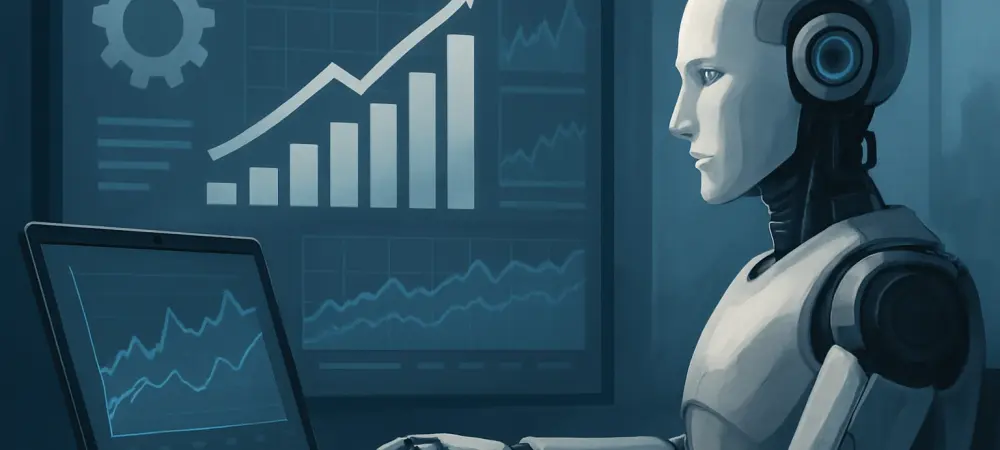Setting the Stage for AI-Driven Market Shifts
In an industry where precision and adaptability define competitive success, the manufacturing sector is witnessing a profound transformation fueled by artificial intelligence (AI). A striking indicator of this shift is the rapid adoption of AI tools, with many firms reporting up to a 30% improvement in sales efficiency through data-driven platforms. At the heart of this evolution stands Volgren, Australia’s leading bus body manufacturer, which has embraced AI to redefine its sales and forecasting strategies. This market analysis explores the implications of Volgren’s integration of advanced CRM technology, delving into how such innovations are reshaping industry trends, customer dynamics, and operational benchmarks. The purpose here is to uncover not just the immediate impacts but also the long-term projections for AI’s role in manufacturing, offering a lens into a broader digital wave.
Decoding Market Trends: AI’s Role in Manufacturing Dynamics
Current Patterns in Digital Transformation
The manufacturing sector today is navigating a critical juncture, marked by a decisive move toward automation and AI-driven solutions. Traditional CRM systems, often plagued by manual inefficiencies, are being replaced by platforms that offer real-time data and predictive insights. Volgren’s adoption of the SugarCRM Precision Selling Platform exemplifies this trend, providing a blueprint for how manufacturers can streamline complex B2B sales cycles. This shift is not isolated but part of a larger market movement, where companies are prioritizing operational agility to meet rising customer expectations and counter competitive pressures. The focus on digital tools is also evident in the growing investment in integrated ERP-CRM systems, which ensure seamless information flow across departments.
Volgren’s Strategic Edge in Sales Optimization
Zooming in on Volgren’s specific approach, the implementation of AI has brought measurable enhancements to its sales processes. The ability to track sales pipelines with real-time visibility has cut down on manual data entry, allowing sales teams to zero in on high-value opportunities. This capability is transforming how deals are managed, from initial quoting to final closure, reducing response times and minimizing oversight errors. Market data suggests that such improvements align with a broader industry uptick in sales efficiency, as firms leveraging AI report faster deal cycles. Volgren’s experience underscores a pivotal trend: technology is no longer just a support tool but a core driver of revenue growth in manufacturing.
Forecasting Precision as a Competitive Lever
Another dimension of AI’s market impact lies in its forecasting capabilities, where Volgren has seen significant gains. Advanced analytics and data enrichment tools within modern CRM platforms enable precise predictions of demand trends and supply lead times, a stark contrast to outdated methods reliant solely on historical data. For manufacturers, this means better alignment of production with market needs, reducing waste and optimizing inventory. Across the sector, similar AI applications are gaining traction, with projections indicating a steady rise in adoption rates over the next few years, from 2025 to 2027. However, the market must balance these technological predictions with human oversight to avoid potential missteps in volatile conditions.
Customer Engagement Redefined by Data Insights
AI’s influence extends beyond internal operations to reshape customer relationships, a critical factor in B2B markets. Volgren’s use of precision selling tools offers tailored recommendations for nurturing leads and retaining clients, enhancing responsiveness during intricate processes like requests for proposals. This data-driven engagement stands out in a market where personalized service is becoming a differentiator, helping to curb churn and build loyalty. Industry-wide, there’s a noticeable shift toward using AI not as a replacement for human interaction but as an enabler of deeper, more meaningful connections. This trend signals a future where customer satisfaction hinges on the strategic use of technology.
Projecting AI’s Future Trajectory in Manufacturing
Looking ahead, the trajectory of AI in manufacturing points to even greater integration and sophistication. Emerging applications, such as predictive maintenance powered by machine learning, are set to optimize supply chains further, minimizing downtime and costs. Market projections also highlight the potential for deeper synergies between CRM and ERP systems, promising a more cohesive operational framework for firms like Volgren. Economic pressures, including fluctuating material costs, and regulatory shifts around data privacy will likely influence how these tools are deployed, necessitating adaptive strategies. The overarching trend suggests that AI will continue to simplify complex sales and service tasks, positioning early adopters for sustained market leadership.
Reflecting on Volgren’s AI Journey and Strategic Implications
Looking back, Volgren’s integration of AI through the SugarCRM platform marked a turning point for its operational and competitive standing in the manufacturing landscape. The gains in sales efficiency, forecasting accuracy, and customer engagement reflected a broader industry pivot toward digital innovation. For other players in the market, the lesson is clear: adopting scalable AI solutions can bridge critical gaps in CRM and operational workflows. Moving forward, businesses should focus on assessing their technological readiness, investing in platforms that align with existing systems, and committing to ongoing training to maximize adoption. By striking a balance between automated insights and human expertise, manufacturers can not only replicate Volgren’s achievements but also drive the next wave of industry transformation.

